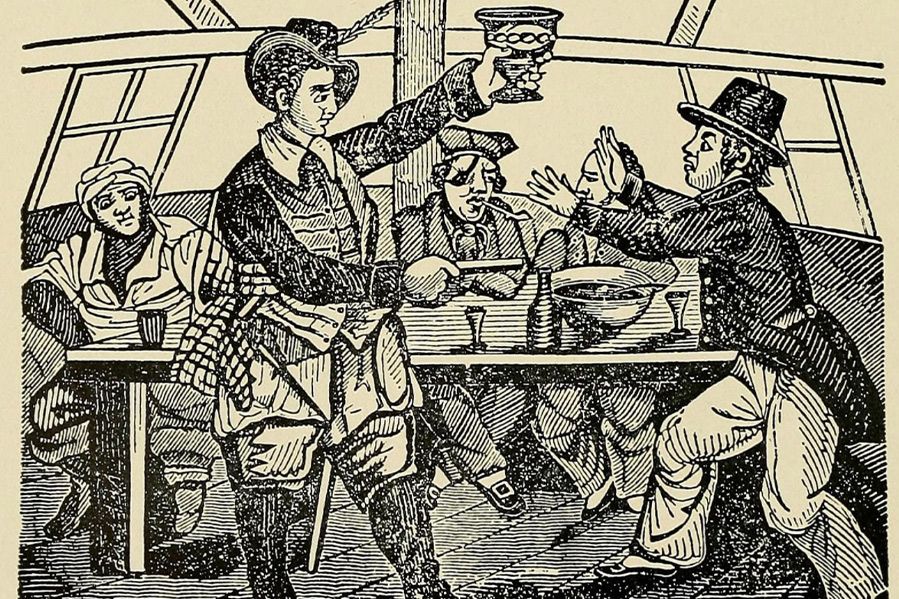
For many people, the concept of a same-sex marriage or union is a relatively new concept. When you consider how long straight couples have been getting married, it should come as little surprise that there has been a desire for formal partnerships for gay couples for centuries. Depending on who you talk to, marriage can be viewed as a partnership with romantic, social, and economic implications. This article explores the concept of matelotage, a type of partnership between pirates from the 1600s and 1700s.
Exploring the Concept of Matelotage
Matelotage was an agreement between European sailors, specifically buccaneers. French for “seamanship,” matelotage represented a partnership between two men aboard a ship. On its face, this agreement was mostly economic and covered the following:
- Shared income: These sailors or “matelots” would pool their incomes, guaranteeing financial security for both.
- Inheritance: If one partner died, the other inherited most or all of his possessions and assets.
- Mutual backing: Both sailors committed to protecting each other, including fighting alongside each other. This helped to develop a unique sense of friendship and trust.
While many historians describe matelotage agreements as being platonic, the true nature of matelotage is debated. Given the lifelong mutual commitment, the question must be asked: Were matelotage pirates early participants in same-sex marriages?
Going Beneath the Surface
While the practical aspects of matelotage are evident, other aspects suggest these agreements were more than economic:
- Friendship and companionship: Sailors were often in environments isolated from families and friends. Matelotage arrangements were often sources of emotional support and intimacy.
- Same-sex relations: Among predominantly male crews, such agreements could facilitate romantic love and physical intimacy, even if these connections weren’t openly acknowledged.
- Sense of family: Matelotage partners may have experienced a sense of family and community, not shared with other sailors with whom there were no partnerships.
The idea that matelotage partnerships were a type of same-sex union gains considerable strength when pondering some of the non-economic aspects.
Comparing Same-Sex Marriages and Matelotage Agreements
There are several similarities between gay marriage and matelotage. For example, some communities formalized matelotage through ceremonies or written agreements, not unlike marriage ceremonies and the licenses that make them legal. One of the more obvious similarities is the sharing of benefits. Matelotage pirates enjoyed economic security, inheritance rights, and companionship. While some societies were more accepting of same-sex relationships within matelotage, others were not. Participants sometimes faced societal judgment, prejudice, and marginalization.
One of the key differences between matelotage and same-sex unions is the legal recognition and protections that come with modern marriages. Matelotage tended to exist strictly among seamen (and other trades), not in a larger societal context. Ostensibly, marriages, both gay and straight, are usually driven by love and emotional commitment and connection. The romantic and sexual aspects of matelotage are still hotly debated, as economic protection was usually the basis for these agreements.
Reconciling Matelotage and Gay Marriage
The history of humankind is rich and full of surprises. Matelotage continues to be a complex subject that calls for nuance. The practicality of such a partnership’s benefits is apparent, but the emotional and social aspects remain open for interpretation and debate. Whether matelotage was a precursor to gay marriage depends on individual perspectives and how historical evidence is viewed and understood.
The experiences and motivations within matelotage were likely diverse, requiring additional research and nuance. The multifaceted nature of these partnerships has parallels to modern marriages, which can also have motivations that are economic and practical as well as romantic and sexual. Matelotage provides a glimpse into an alternative type of relationship, reminding us that human relationships are complex and should be viewed with empathy, open-mindedness, and respectful curiosity.



